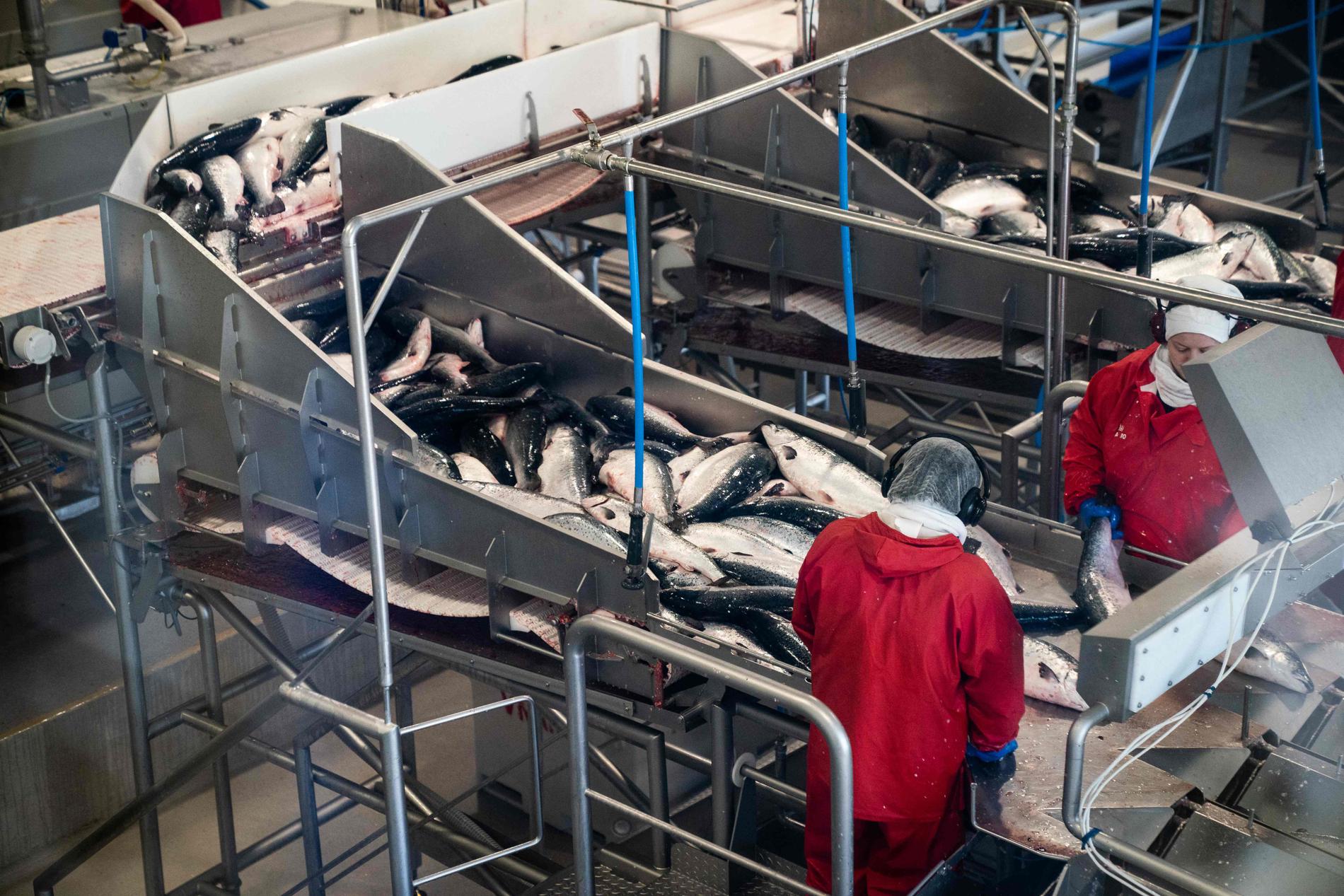The Faroese breeder, which is also big in Scotland, says it is cutting staff to pay taxes.
Photo: IDA MARIE ODGAARD / AFP / NTBPublished: Published:
Less than 10 minutes ago
Copy linkCopy linkShare on FacebookShare on FacebookShare by emailShare by email
In contrast to the Norwegian breeders, the company is exempt from ground rent tax. The Faroe Islands, on the other hand, have tightened up with an additional production tax.
As a result of this “salmon tax”, Bakkafrost has adjusted its strategy for further processing to reduce contract risk in 2024. Thus, the company has only secured advance sales of 9 per cent of total slaughter, compared to 22 per cent at the same time last year.
– We hoped that we could agree a sufficient amount of long-term contracts, so that we could keep all our employees. But the conditions have changed, especially after the new income tax has been introduced. We had also hoped that new political changes would come in time as promised, but unfortunately we were let down, says CEO of Bakkafrost, Regin Jacobsen in a melding.
As a result, 140 employees at the company’s further processing plant will lose their jobs.
Both the Conservative Party and Sjømat Norge have asked the government to investigate alternatives to the ground rent tax, and among other things pointed to the system in the Faroe Islands.
Fact box: The “Salmon Tax” in the Faroe Islands
In the Faroe Islands, the aquaculture industry is subject to a production tax on the value of gutted fish. The basis of the tax is the monthly gutted weight multiplied by the average spot market price at the Fish Pool marketplace in Bergen, i.e. the turnover. The tax rate depends on the price, if the price per kilo is below 32 Danish kroner, the tax is 0.5 per cent of the turnover. If the price per kilo is 32–36 Danish kroner, the tax is 2.5 per cent of the turnover. If the price per kilo is over 36 Danish kroner, the tax is 5 per cent of the turnover. The basis for the different intervals for the price is an assumed average production cost of 32 Danish kroner per kilo. kilo. At today’s exchange rate, 32 Danish kroner is equivalent to approximately 50 Norwegian kroner. The authority in the Faroe Islands has put forward proposals for new steps and rates from 1 August. There are up-adjusted limits for the prices and several steps. A new top rate of 20 per cent kicks in when the price is over 79.15 Danish kroner per kilo (around NOK 120 per kilo). The Faroe Islands have around 53,000 inhabitants and mainly three farming companies. The Faroe Islands are part of Denmark, but have internal self-government with their own elected parliament (Lagtinget) and their own government. The Faroe Islands have a trade agreement with The EU, but is not a member, even though Denmark is Fish products, both from farming and fisheries, make up about 95 per cent of exports and 20 per cent of the gross domestic product The fishing industry employs around 15 per cent. Total salmon farming in 2022 of around 90,000 tonnes, against around 1.3 million tonnes in Norway
Source: Hiddenfjord and the Ministry of Finance, Wikipedia, Great Norwegian Lexicon, Faroese authorities, Norwegian Seafood Council, ICES
Sea view
Resultatfall
The Oslo Børs-listed company delivered results last week. The operational operating result fell to 269 million Danish kroner in the third quarter, from 428 million at the same time the previous year.
– Our segment for fishmeal, fish oil and feed has delivered another strong quarter, but we are not satisfied with the results from the farming segments this quarter, said Bakkafrost CEO Regin Jacobsen.
2023-11-13 12:10:14
#Bakkafrost #cuts #employees #blames #Faroese #salmon #tax

